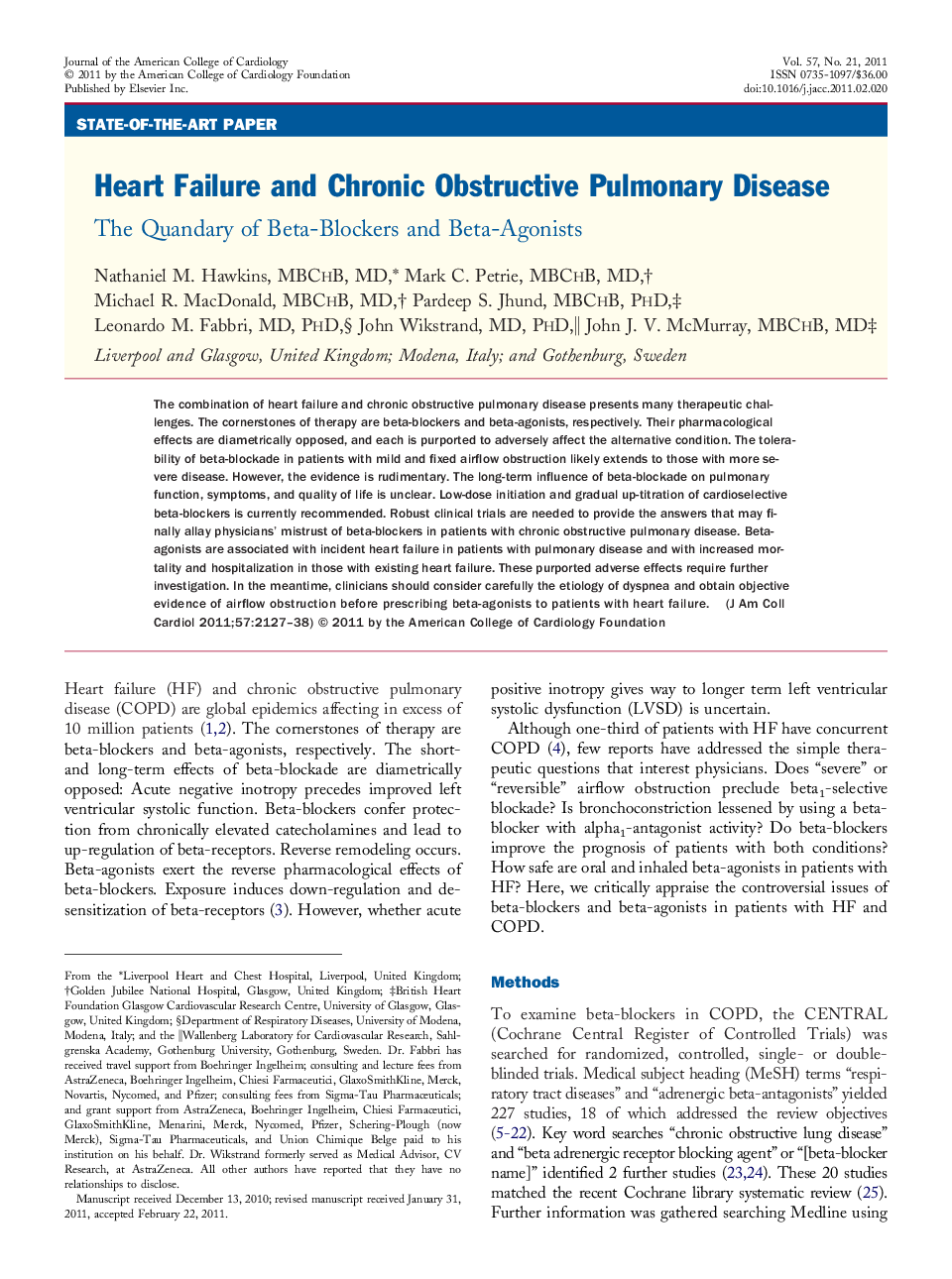| Article ID | Journal | Published Year | Pages | File Type |
|---|---|---|---|---|
| 2948288 | Journal of the American College of Cardiology | 2011 | 12 Pages |
The combination of heart failure and chronic obstructive pulmonary disease presents many therapeutic challenges. The cornerstones of therapy are beta-blockers and beta-agonists, respectively. Their pharmacological effects are diametrically opposed, and each is purported to adversely affect the alternative condition. The tolerability of beta-blockade in patients with mild and fixed airflow obstruction likely extends to those with more severe disease. However, the evidence is rudimentary. The long-term influence of beta-blockade on pulmonary function, symptoms, and quality of life is unclear. Low-dose initiation and gradual up-titration of cardioselective beta-blockers is currently recommended. Robust clinical trials are needed to provide the answers that may finally allay physicians' mistrust of beta-blockers in patients with chronic obstructive pulmonary disease. Beta-agonists are associated with incident heart failure in patients with pulmonary disease and with increased mortality and hospitalization in those with existing heart failure. These purported adverse effects require further investigation. In the meantime, clinicians should consider carefully the etiology of dyspnea and obtain objective evidence of airflow obstruction before prescribing beta-agonists to patients with heart failure.
